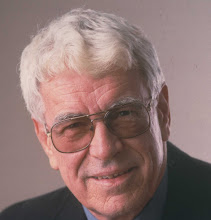But I'd really like the old Subie to hang on long enough for me to replace it with a next-generation vehicle: a Tesla, say , or a Honda FCX Clarity or maybe a Chevrolet Volt. Or a tiny, all-electric Subaru R1e. These vehicles may not be familiar, but cars like them are coming soon to a carport near you – and, from an environmental viewpoint, the sooner the better.
The Tesla (www.teslamotors.com
Hmm. Maybe not a Tesla. What about the attractive Honda FCX Clarity sedan? (
The availability of hydrogen will also govern the appeal of BMW's Hydrogen 7, a modified stock sedan which Jay Leno recently took for a 10-day test drive. (
The Chevy Volt (
The Volt is a “concept vehicle,” not likely to appear in the showroom any time soon. But General Motors, its manufacturer, already has gasoline/electric hybrid versions of several models, and will soon be testing a fleet of 100 fuel-cell SUVs. Alas, those will only be available in New York, Washington and Los Angeles. So we won't be getting one of those, either.
And now Popular Mechanics reports on a new generation of diesel vehicles in Europe, where more than half of all passenger cars are diesel-powered. Volkswagen's Polo – only available in Europe, alas – can get up to 75 miles per gallon while producing even fewer emissions than Toyota's celebrated hybrid Prius. The secret of such performance is new low-sulphur diesel fuel, combined with advanced exhaust-scrubbing systems.
All the major carmakers say they'll be producing new clean-diesel vehicles within a couple of years, but most of them are likely to be light trucks and big cars, not fuel-misers like the Polo. One exception will be Volkswagen's diesel Jetta, a car I look forward to seeing.
I like diesels not only because they're simple, economical and efficient, but also because they can readily be modified to run on a variety of fuels, including some truly sustainable ones. Indeed, Rudolf Diesel originally designed his engine to run on vegetable oil. The Constant Reader may remember my friend Jamil Shariff, who drove from Montreal to Vancouver in a diesel Volkswagen fuelled by McDonald's french fry oil.
All of which substantiates Jay Leno's remark that the environmental problem is not so much the car as the fuel. An electric car running on batteries charged by the wind – or by a diesel generator burning methane derived from sewage – is something approaching a sustainable car.
And, as Tesla's marketing materials note, electricity is “the universal currency of energy,” which can be generated “from coal, solar, wind, hydro, and nuclear sources — or a combination of all of them.”
It's hard to believe that the next generation of automobiles could be fast, quiet, economical and clean. But wouldn't that be lovely?
-- 30 --

No comments:
Post a Comment